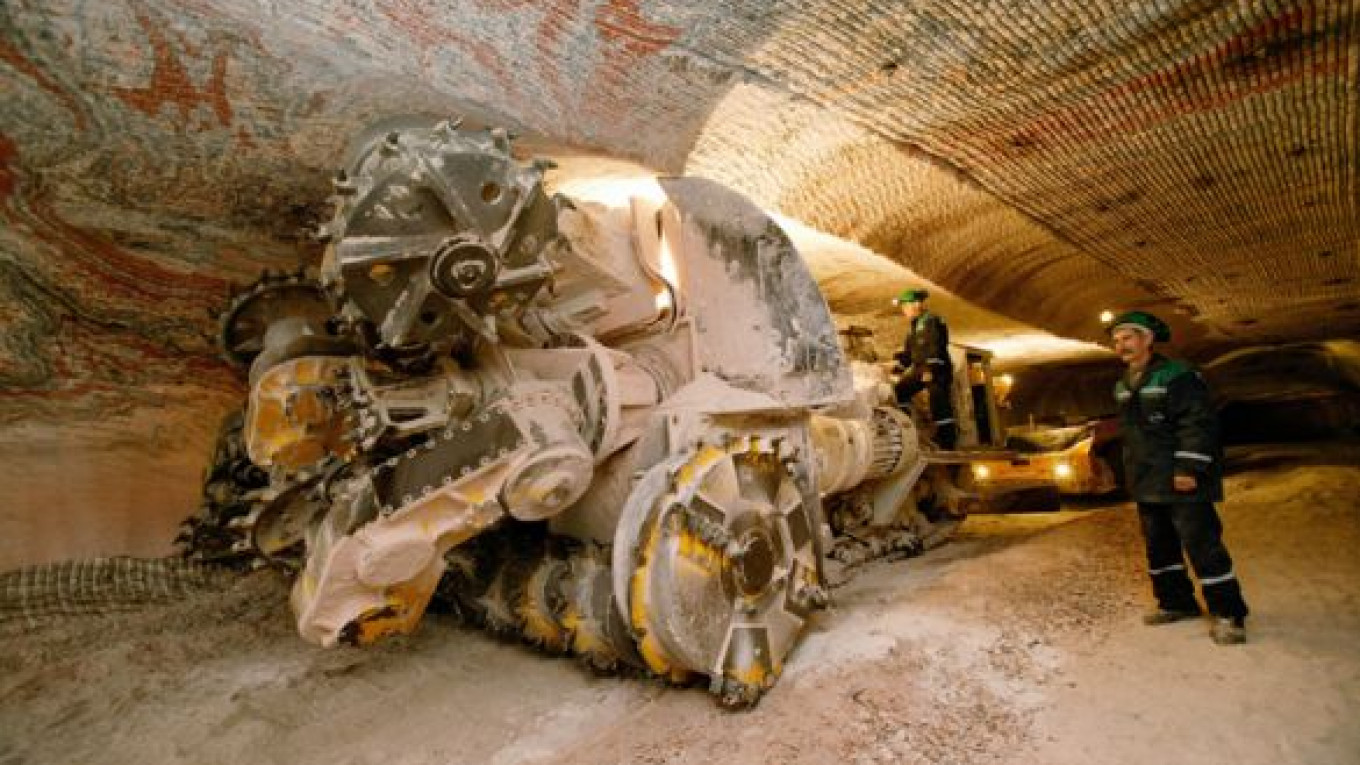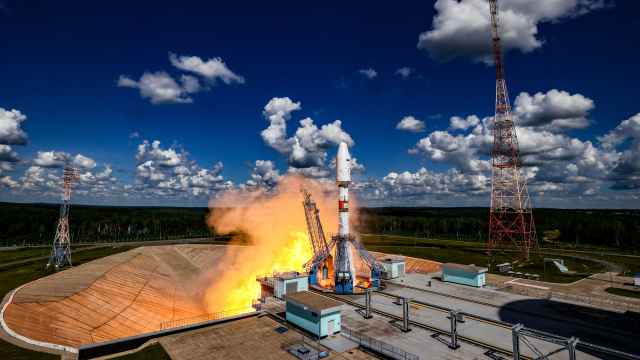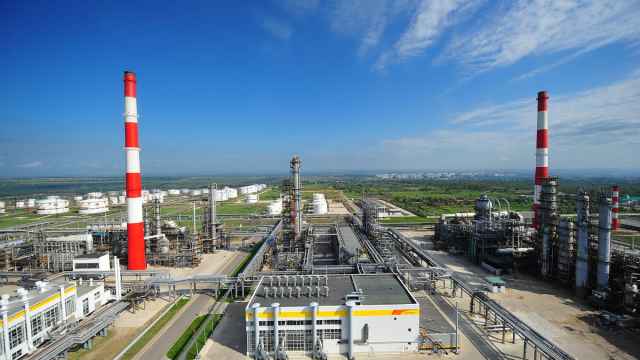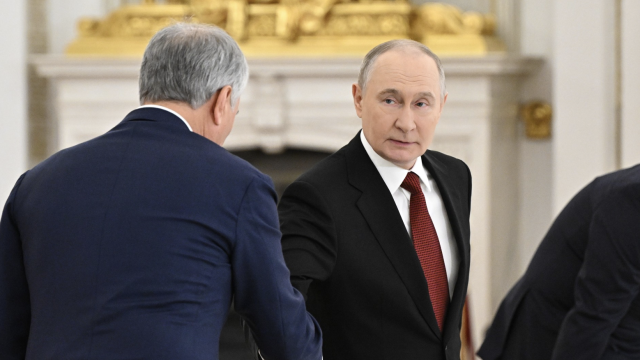Suleiman Kerimov only became co-owner of Uralkali a month and a half ago, but he is already trying to use it to create the world's largest potash company. Vedomosti has learned that he is in talks on purchasing Belaruskali and Silvinit.
Kerimov, Filaret Galchyov and Alexander Nesis bought a controlling stake in Uralkali on June 11 from Dmitry Rybolovlev. It has already become known that the partners intend to unite the company with other potash producers, and they are not wasting any time.
Kerimov recently met with Belarussian President Alexander Lukashenko and, on behalf of Uralkali, offered to buy a controlling stake in Belaruskali from the state, said a source close to one of Uralkali's shareholders. He said Kerimov offered $7.5 billion for 51 percent of the company.
A source at a state bank that was involved in the talks on financing the deal said Kerimov is definitely interested in buying Belaruskali shares but is not considering a controlling stake. The Belarussians value the company very highly — at $20 billion to $30 billion, the source said.
Lukashenko has not recently met with either Kerimov or any other Russian businessman, said Pavel Lyogky, the president's spokesman. Accordingly, the sale of Belaruskali has not been discussed, he added.
Belaruskali is among the world's three biggest potash producers. This year, Belarus included the company in its privatization plans. The company has already attracted interest from Chinese investors, Lyogky said. Uralkali's interest in the asset is also understandable, however. The two companies already sell their product on the world market through a joint venture, Belarussian Potash Company.
At the same time, Kerimov began holding talks on the purchase of a controlling stake in Silvinit from board member Pyotr Kondrashyov, a source close to Silvinit told Vedomosti. Kerimov already owns 25 percent of Silvinit, which he purchased from Rybolovlev and his partner, Vadim Shevtsov.
Talks are being held with VTB on financing the deal, said a source close to the bank. A source in the government confirmed this, adding that if the deal were to go through it would mean that all the country's potash would be concentrated in one pair of hands.
Therefore, officials have to consider how dangerous it will be for the market to create such a monopoly. Taking into account the size of the potential company, it is necessary to understand its ownership structure, its goals and influence on the sector.
A spokesman for Nafta Moskva denied that talks were ongoing with Kondrashyov and VTB. "Neither Kerimov nor his employees have met with Kondrashyov," he said.
Preliminary consultations are now ongoing on how to enlarge Uralkali — whether through a merger or purchase of Silvinit, or some other configuration, said a source close to Uralkali.
"No final decision has yet been made. There are many interested parties, many kinds of possible deals," said the source close to an Uralkali shareholder. An executive at the state bank said VTB was consulting yet another company on the purchase of a Silvinit stake, declining to name the company.
Silvinit and Uralkali are the only potash producers in Russia. Both are located in the Perm region and work at the same deposit — Verkhnekamskoye. Moreover, until the mid-1980s they were a single company. Rybolovlev has also dreamed of merging the two.
If both deals were to take place, Kerimov would create the world's largest potash company, said Alexandra Melnikova, an analyst at ING. The joint capacity of Belaruskali, Silvinit and Uralkali would be 20 million tons a year. The current world leader, Canada's Potash Corporation, produces 15 million tons per year. Potash Corporation's market value stood at $28.9 billion on Tuesday, and $238.5 billion at its peak in 2008.
Because of the conflict between the two countries, Uralkali is unlikely to be able to buy a stake in Belaruskali without a high-level political decision, said Marat Gabitov, an analyst at UniCredit Securities.
A Message from The Moscow Times:
Dear readers,
We are facing unprecedented challenges. Russia's Prosecutor General's Office has designated The Moscow Times as an "undesirable" organization, criminalizing our work and putting our staff at risk of prosecution. This follows our earlier unjust labeling as a "foreign agent."
These actions are direct attempts to silence independent journalism in Russia. The authorities claim our work "discredits the decisions of the Russian leadership." We see things differently: we strive to provide accurate, unbiased reporting on Russia.
We, the journalists of The Moscow Times, refuse to be silenced. But to continue our work, we need your help.
Your support, no matter how small, makes a world of difference. If you can, please support us monthly starting from just $2. It's quick to set up, and every contribution makes a significant impact.
By supporting The Moscow Times, you're defending open, independent journalism in the face of repression. Thank you for standing with us.
Remind me later.






